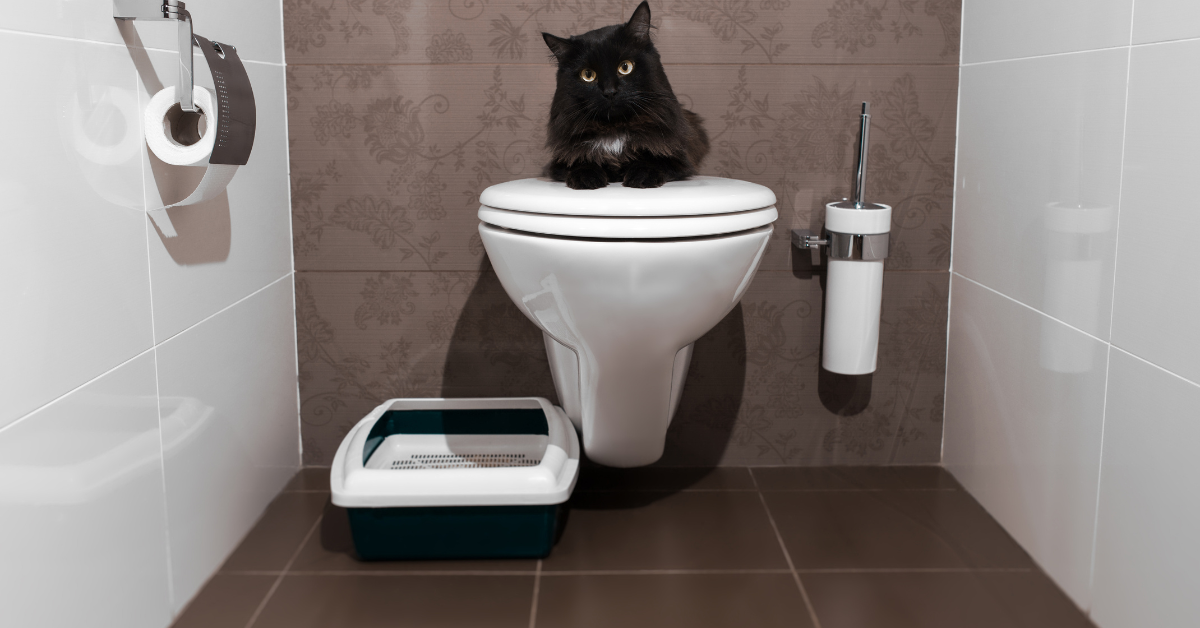The Consequences of Flushing Cat Poop Down Your Toilet - Safeguard Your Pipes
The Consequences of Flushing Cat Poop Down Your Toilet - Safeguard Your Pipes
Blog Article
What're your concepts on Don’t flush cat feces down the toilet?

Introduction
As feline owners, it's necessary to bear in mind just how we get rid of our feline buddies' waste. While it might appear hassle-free to purge cat poop down the commode, this technique can have damaging consequences for both the setting and human health and wellness.
Alternatives to Flushing
The good news is, there are safer and a lot more accountable means to get rid of cat poop. Consider the adhering to alternatives:
1. Scoop and Dispose in Trash
The most usual technique of throwing away pet cat poop is to scoop it into a biodegradable bag and throw it in the trash. Be sure to use a dedicated clutter scoop and dispose of the waste without delay.
2. Usage Biodegradable Litter
Choose biodegradable cat trash made from materials such as corn or wheat. These clutters are environmentally friendly and can be safely gotten rid of in the garbage.
3. Hide in the Yard
If you have a lawn, think about burying cat waste in a marked location away from vegetable yards and water sources. Make sure to dig deep sufficient to avoid contamination of groundwater.
4. Set Up a Pet Waste Disposal System
Invest in a pet dog garbage disposal system specifically developed for pet cat waste. These systems utilize enzymes to break down the waste, decreasing odor and environmental impact.
Health Risks
Along with environmental problems, flushing feline waste can additionally present wellness threats to people. Pet cat feces may include Toxoplasma gondii, a parasite that can create toxoplasmosis-- a potentially serious health problem, specifically for expecting females and individuals with damaged immune systems.
Ecological Impact
Flushing feline poop introduces hazardous virus and bloodsuckers right into the water, presenting a significant risk to water communities. These contaminants can adversely impact marine life and concession water quality.
Conclusion
Liable family pet possession expands past supplying food and sanctuary-- it likewise entails correct waste administration. By refraining from purging feline poop down the bathroom and going with alternative disposal approaches, we can minimize our ecological footprint and secure human health and wellness.
Why Can’t I Flush Cat Poop?
It Spreads a Parasite
Cats are frequently infected with a parasite called toxoplasma gondii. The parasite causes an infection called toxoplasmosis. It is usually harmless to cats. The parasite only uses cat poop as a host for its eggs. Otherwise, the cat’s immune system usually keeps the infection at low enough levels to maintain its own health. But it does not stop the develop of eggs. These eggs are tiny and surprisingly tough. They may survive for a year before they begin to grow. But that’s the problem.
Our wastewater system is not designed to deal with toxoplasmosis eggs. Instead, most eggs will flush from your toilet into sewers and wastewater management plants. After the sewage is treated for many other harmful things in it, it is typically released into local rivers, lakes, or oceans. Here, the toxoplasmosis eggs can find new hosts, including starfish, crabs, otters, and many other wildlife. For many, this is a significant risk to their health. Toxoplasmosis can also end up infecting water sources that are important for agriculture, which means our deer, pigs, and sheep can get infected too.
Is There Risk to Humans?
There can be a risk to human life from flushing cat poop down the toilet. If you do so, the parasites from your cat’s poop can end up in shellfish, game animals, or livestock. If this meat is then served raw or undercooked, the people who eat it can get sick.
In fact, according to the CDC, 40 million people in the United States are infected with toxoplasma gondii. They get it from exposure to infected seafood, or from some kind of cat poop contamination, like drinking from a stream that is contaminated or touching anything that has come into contact with cat poop. That includes just cleaning a cat litter box.
Most people who get infected with these parasites will not develop any symptoms. However, for pregnant women or for those with compromised immune systems, the parasite can cause severe health problems.
How to Handle Cat Poop
The best way to handle cat poop is actually to clean the box more often. The eggs that the parasite sheds will not become active until one to five days after the cat poops. That means that if you clean daily, you’re much less likely to come into direct contact with infectious eggs.
That said, always dispose of cat poop in the garbage and not down the toilet. Wash your hands before and after you clean the litter box, and bring the bag of poop right outside to your garbage bins.
https://trenchlesssolutionsusa.com/why-cant-i-flush-cat-poop/

We had been shown that editorial about Can You Flush Cat Poop Down The Toilet? through an acquaintance on our other web page. Kindly take the time to promote this blog posting if you liked it. Thank you for taking the time to read it.
Call Today Report this page